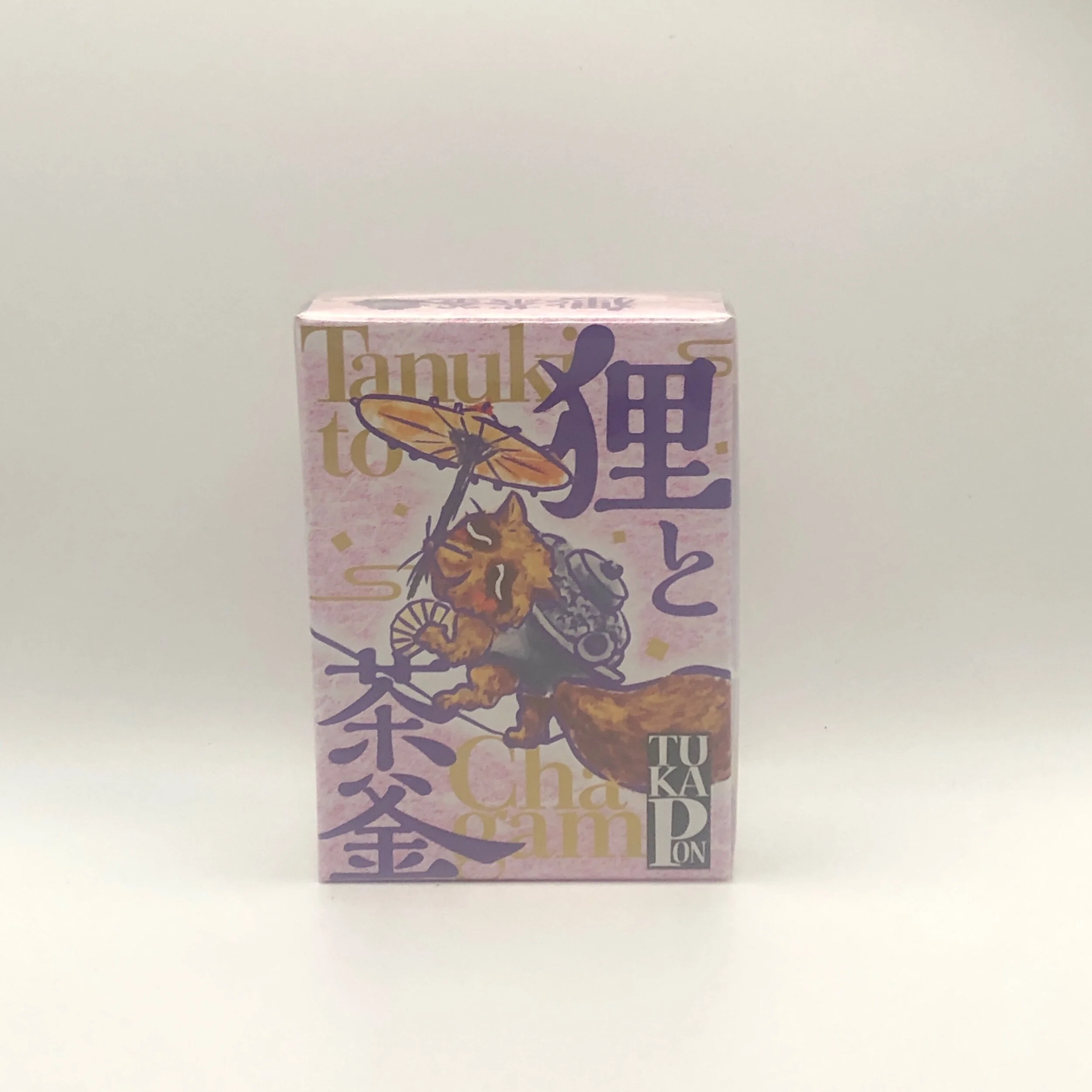 Image 1 of
Image 1 of


Tanuki to Chagam (IMPORT)
This game is in Japanese but is language-independent (no Japanese text on cards), a pdf copy of the English rules will be provided with the game if they are not included within the box.
狸と茶釜 (Tanuki to Chagam) is a card game from Japan. Each player predicts how many times he will win from the dealt hand and declares all at once. After that, each player takes out one card from his hand, compares the strength of that card, and the player who puts out the strongest card receives all the cards in the field. Basically, you have to play a card of the same color as the first player to play, and if you don't have that color in your hand, you can play any card you like.
In addition, there is a tea pot card among the cards, and if you meet the following three conditions, you can change the card you issued to 0, which is the same color as the tea pot card.
1) The tea pot card is already in play.
2) The number of the raccoon dog card you put out is larger than the number of the tea pot card.
3)The tea pot card is not already used for another raccoon card.
Make good use of the timing when the Chagama card is issued and adjust the number of times you win. When everyone runs out of hands, they move on to score calculation, and the score is determined by the difference between the number of wins they declared and the actual result.
The player who plays the game for the number of players and has the highest total score is the winner of the game.
This game is in Japanese but is language-independent (no Japanese text on cards), a pdf copy of the English rules will be provided with the game if they are not included within the box.
狸と茶釜 (Tanuki to Chagam) is a card game from Japan. Each player predicts how many times he will win from the dealt hand and declares all at once. After that, each player takes out one card from his hand, compares the strength of that card, and the player who puts out the strongest card receives all the cards in the field. Basically, you have to play a card of the same color as the first player to play, and if you don't have that color in your hand, you can play any card you like.
In addition, there is a tea pot card among the cards, and if you meet the following three conditions, you can change the card you issued to 0, which is the same color as the tea pot card.
1) The tea pot card is already in play.
2) The number of the raccoon dog card you put out is larger than the number of the tea pot card.
3)The tea pot card is not already used for another raccoon card.
Make good use of the timing when the Chagama card is issued and adjust the number of times you win. When everyone runs out of hands, they move on to score calculation, and the score is determined by the difference between the number of wins they declared and the actual result.
The player who plays the game for the number of players and has the highest total score is the winner of the game.
This game is in Japanese but is language-independent (no Japanese text on cards), a pdf copy of the English rules will be provided with the game if they are not included within the box.
狸と茶釜 (Tanuki to Chagam) is a card game from Japan. Each player predicts how many times he will win from the dealt hand and declares all at once. After that, each player takes out one card from his hand, compares the strength of that card, and the player who puts out the strongest card receives all the cards in the field. Basically, you have to play a card of the same color as the first player to play, and if you don't have that color in your hand, you can play any card you like.
In addition, there is a tea pot card among the cards, and if you meet the following three conditions, you can change the card you issued to 0, which is the same color as the tea pot card.
1) The tea pot card is already in play.
2) The number of the raccoon dog card you put out is larger than the number of the tea pot card.
3)The tea pot card is not already used for another raccoon card.
Make good use of the timing when the Chagama card is issued and adjust the number of times you win. When everyone runs out of hands, they move on to score calculation, and the score is determined by the difference between the number of wins they declared and the actual result.
The player who plays the game for the number of players and has the highest total score is the winner of the game.
